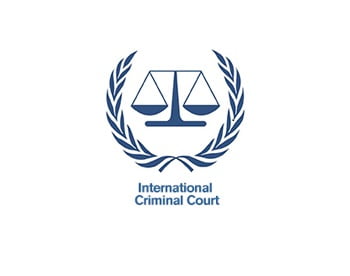International Criminal Court
Context:
The International Criminal Court convicted a former commander (Dominic Ongwen) in the notorious Ugandan rebel group the Lord’s Resistance Army of dozens of war crimes and crimes against humanity ranging from multiple murders to forced marriages.
About:
- The ICC is an intergovernmental organization and international tribunal that sits in The Hague, Netherlands.
- It is the first and only permanent international court with jurisdiction to prosecute individuals for the international crimes of genocide, crimes against humanity, war crimes, and the crime of aggression.
- It is intended to complement existing national judicial systems and it may therefore exercise its jurisdiction only when national courts are unwilling or unable to prosecute criminals.
- The ICC lacks universal territorial jurisdiction, and may only investigate and prosecute crimes committed within member states, crimes committed by nationals of member states, or crimes in situations referred to the Court by the UNSC
ICC Functions
- The ICC aims to end impunity and hold those individuals responsible for heinous crimes against humanity to face justice.
- It also aims to prevent crimes from happening through the proper dispensation of justice.
- The ICC intends to complement national courts and not replace them.
- It is governed by an international statute known as the Rome Statute. The Statute entered into force in July 2002.
- The Court has about 900 staff members from about one hundred nations.
- It has two working languages namely English and French. There are 6 official languages namely, English, French, Arabic, Chinese, Spanish and Russian.
- The ICC has heard 28 cases until now.
- India is not a member of the ICC.
- Each member party has one vote and voting is resorted to only when decisions cannot be taken by consensus.
Facts
- Today the ICC has over 900 staff members from approximately 100 States.
- It has 6 official languages: English, French, Arabic, Chinese, Russian and Spanish.
- ICC has 6 field offices: Kinshasa and Bunia (Democratic Republic of the Congo, “DRC”); Kampala (Uganda); Bangui (Central African Republic, “CAR”); Nairobi (Kenya), Abidjan (Côte d’Ivoire).
- It has 2 working languages: English and French.
- There have thus far been 27 cases before the Court, with some cases having more than one suspect.
- 16 people have been detained in the ICC detention centre.
- The judges have issued 8 convictions and 3 acquittals.
International Criminal Court – Organizational Structure
- The approval of ICC’s budget, the election of judges and prosecutors is done by the Assembly of States Parties
- There are four organs of the International Criminal Court (ICC):
- Presidency
- Judicial Division
- Office of the Prosecutor
- Registry
- There are multiple field offices which have been set up by ICC in countries where investigations are held
- Those detailed by ICC are moved to a detention centre which is safe and secure and the authority responsible for inspection in the Centre is the International Committee of the Red Cross (ICRC)
- It must also be noted that it is not a United Nations Organisation but had a cooperation agreement with the UN
- The Rome Statute, grants the ICC jurisdiction over four main crimes:
- The crime of Genocide
- Crimes against Humanity
- War crimes
- Crime of Aggression
Limitations with the International Criminal Court
There are certain conditions and limitations with the functioning of the International Criminal Court:
- ICC relies upon the different countries for the arrest and transfer of the guilty person to the detention centre as no special force or police authorities have been enforced specifically for ICC
- The selection of cases by ICC is very selective
- Regular checks are not done on the authority of the ICC prosecutor and judges
- In the past, the International Criminal Court has also been accused of being partial towards the powerful countries
- There is a scarcity of human resources and funds with ICC
- It has been accused of being a tool for western imperialism
- State cooperation is necessary for ICC to function effectively. This factor renders its efficacy low as perpetrators of crimes can take over governments and avoid facing justice through the ICC
India and ICC
- India did not sign the Rome Statute because of the following reasons:
- National interests
- State sovereignty
- Problem to find impartial prosecutors
- Difficulty in collection of evidences
- Crime definition
ICC vs ICJ
| Parameter | ICC | ICJ |
| Location | The Hague | The Hague |
| Case types | Criminal prosecution of individuals | Contentious between parties, and advisory opinions |
| Subject matter | Genocide, crimes against humanity, war crimes, crimes of aggression | Maritime disputes, sovereignty, natural resources, trade, treaty violations and treaty interpretations, human rights, etc. |
| Funding | Contribution from parties to the Rome Statute, voluntary contributions from the UN, from governments, corporations, organisations, etc. | UN |
Way Forward
- States should actively encourage cooperation with ICC and support human rights defenders working towards international justice and the fulfilment of the ICC’s mandate.
- To enhance its credibility the court needs to broaden its ambit by including more permanent members of UN and by strengthening of investigations and prosecutions.
- ICC role is very important as international justice can contribute to long‐term peace, stability and equitable development in post‐conflict societies.
- Having said so it is also important to know that the ICC actively works to build understanding and cooperation in all regions through seminars and conferences worldwide.
Discover more from Simplified UPSC
Subscribe to get the latest posts sent to your email.



